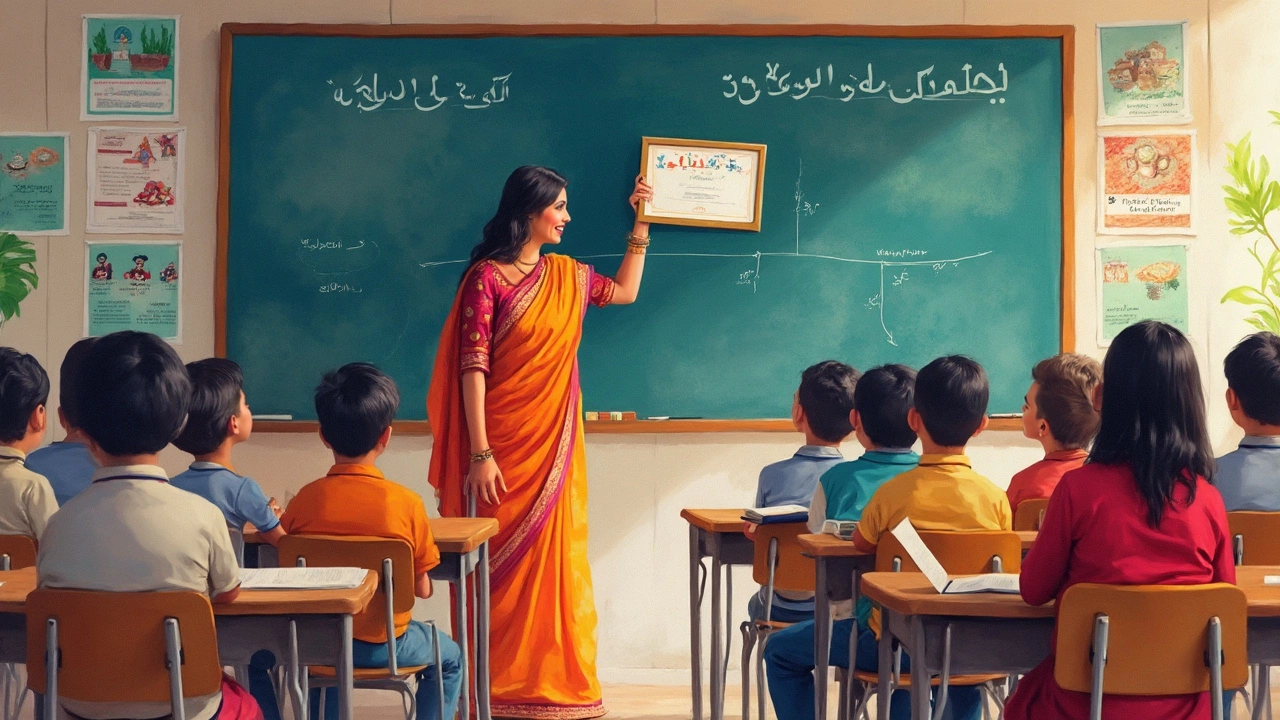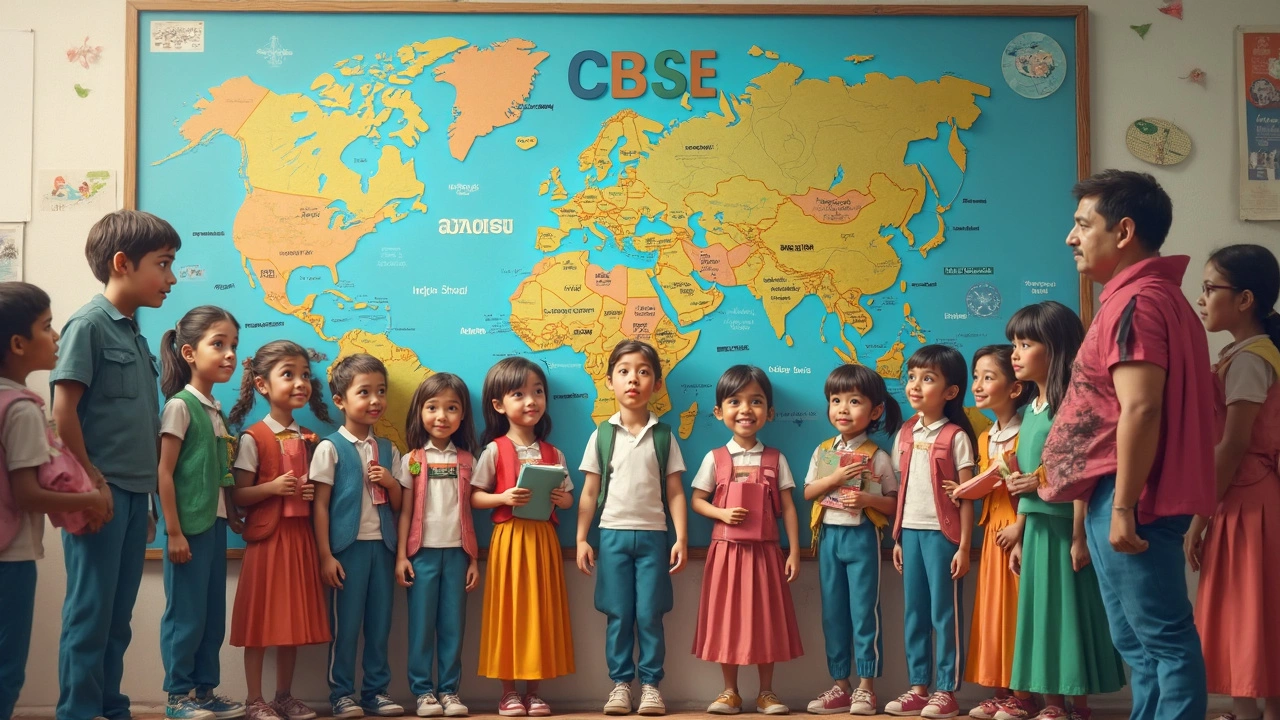People throw around terms like 'CBSE' and 'international board' all the time. But when it comes down to picking schools or moving countries, confusion hits hard—especially if you've got one foot in India and the other eyeing places like the UAE, Singapore, or Canada.
The CBSE, or Central Board of Secondary Education, is India's well-known school board. Over 28 million students follow this syllabus each year. You see CBSE-affiliated schools every few blocks in most Indian cities, but did you know there are also CBSE schools in more than 25 other countries? That often gets parents wondering: is CBSE really just Indian, or is it international too?
If you're tired of vague answers, you're in the right place. We'll get into who controls CBSE, where it stands in the world, and how it helps (or limits) students who want to study abroad. You’ll figure out if CBSE lines up with your plans—or if you should look elsewhere.
- CBSE: Where and How It Started
- Is CBSE Recognized Internationally?
- CBSE vs. True International Boards
- Tips for Choosing the Right Syllabus
CBSE: Where and How It Started
Let's clear up when and why CBSE even came into the picture. The Central Board of Secondary Education, or CBSE, kicked off in 1929 when a group of top schools in India wanted a standard way of teaching for the children of government employees who kept moving around the country. Nobody wanted kids to struggle just because their parents got transferred every couple of years. The idea was to have a single board so students could switch schools across India without hitting major snags with the syllabus.
The Indian government made CBSE official in 1962, giving it more authority. The board started setting up rules for how schools should teach, what textbooks they should use, and how exams should be run. It's not just about classes 10 or 12—CBSE handles everything from primary to high school in nearly 28,000 schools worldwide today.
Here are some quick facts that set CBSE apart:
- CBSE is run by the Ministry of Education, Government of India.
- It covers subjects like Math, Science, Social Studies, and languages in a structured way, across all grades.
- The board conducts two big national-level exams: Class 10 (Secondary School Examination) and Class 12 (Senior School Certificate Examination).
For a quick look at CBSE's reach, check this simple data table:
| Year Founded | No. of CBSE Schools (2024) | Countries (outside India) |
|---|---|---|
| 1929 (official in 1962) | 27,900+ | 25+ |
If you've ever wondered why CBSE seems to pop up in Dubai, Kathmandu, or even Moscow, it's because Indian expat families want their kids to follow a familiar academic path, no matter where they move. That’s how CBSE has ended up spreading its roots well beyond India’s borders—starting local, but definitely thinking global.
Is CBSE Recognized Internationally?
One of the biggest questions families have: can you take your CBSE results and use them outside of India? Here’s the straight-up answer—CBSE isn’t technically an ‘international board’ like IB or Cambridge, but it’s recognized in many places worldwide.
The Indian government backs CBSE, and universities in the USA, Canada, UK, Australia, and even Singapore know about it. Admission offices have seen lakhs of CBSE transcripts. In fact, a 2023 report showed that over 18,000 CBSE graduates landed places in universities in North America alone.
You’ll also find more than 200 CBSE-affiliated schools outside India, especially in UAE, Saudi Arabia, Singapore, Qatar, and Oman. These schools mostly serve Indian expat families, but kids from other countries sometimes join too.
| Country | No. of CBSE Schools (2024) | Who Attends |
|---|---|---|
| UAE | 83 | Mainly Indian expats, but some locals too |
| Singapore | 6 | Mostly Indian expats |
| Saudi Arabia | 19 | Indian and other South Asian expat kids |
| Qatar | 15 | Mostly Indians |
| Oman | 21 | Primarily Indian expats |
CBSE is more widely accepted than you might expect. International colleges generally understand the grading system, and many let you apply directly using your marks from CBSE’s 12th board exams. But there’s a catch: a few universities (especially in Europe) might want extra tests or bridge courses to match local standards in subjects like language or humanities.
Your best move? Always double-check requirements for your dream college. Some might ask for SAT or IELTS along with CBSE grades. If you’re aiming for medicine or engineering abroad, make sure your combination of subjects meets their needs—certain places expect a specific number of lab hours or coursework that might not be covered by CBSE alone.
So, while CBSE isn’t international in its roots, it’s become a familiar face in admissions offices worldwide.

CBSE vs. True International Boards
Here's where the real difference comes in. The CBSE is designed and controlled by India's government, mainly for Indian citizens or kids of Indian workers living abroad. Its main goal? Making sure students fit the Indian college system and entrance exams. But how does it stack up against boards like IB (International Baccalaureate) and Cambridge IGCSE?
- CBSE: Focuses on subjects and teaching methods needed for Indian entrances like NEET and JEE. The style is heavily textbook based, testing what you know more than how you think or apply.
- IB (International Baccalaureate): Big worldwide name. Teaches students to research, analyze, and think across subjects. College admissions officers in the US, UK, and Europe love seeing IB on applications.
- Cambridge IGCSE and A-Levels: Another international giant. Offers tons of subject choices, lots of project and application-based work instead of rote memorization. Students can tailor the learning to their interests.
Here’s a table showing how they compare on big points:
| Feature | CBSE | IB | Cambridge IGCSE/A-Levels |
|---|---|---|---|
| Control/Origin | India, Govt. | Switzerland, Non-profit | UK, University of Cambridge |
| Focus | Indian competitive exams | Research, global skills | Flexible, global skills |
| Recognition | Mainly India, some international | Global, high acceptance | Global, high acceptance |
| Teaching Style | Theory, memorization heavy | Projects, inquiry, investigation | Projects, practical, flexible |
| Assessment | Mainly final exams | Coursework and finals | Coursework and finals |
One big thing to remember: most Indian colleges prefer CBSE or state boards. If you’re set on an Indian college entrance exam, CBSE lines up well. But if you're thinking about US or UK universities, having IB or Cambridge on your school record makes things a lot smoother.
The fees also tell a story. International schools (IB or Cambridge) can be three to five times more expensive than CBSE schools. So if budget’s a factor, that’s something to weigh seriously.
Tips for Choosing the Right Syllabus
Picking the right school syllabus affects not just a student's results, but college options and even where families might move later. The stakes are real, so here are easy ways to narrow down your choice—without the usual headaches.
- CBSE is run by India’s central government, so if you’re staying in India or coming back soon, it’s the most practical option. Almost every competitive exam here, from JEE to NEET, is based on the CBSE pattern.
- Planning to move abroad? Check if your new home has CBSE-affiliated schools (like in UAE, Singapore, Oman, or Qatar). If not, the switch to a fully international curriculum (like IB or Cambridge) might make more sense.
- Ask about languages. CBSE gives you options like Hindi, Sanskrit, and French—but if a foreign language is essential in your destination country, this could matter.
- Look at higher study needs. A table makes it clear where CBSE is recognized abroad:
| Country | CBSE School Presence | CBSE Acceptance in Colleges |
|---|---|---|
| UAE | Yes (over 70 schools) | Yes, but some universities require assessment |
| USA | Few schools | Possible, but SAT/ACT scores needed |
| UK | No | Sometimes, but A-levels preferred |
| Singapore | Yes | Yes, for some courses |
- Talk to recent students or teachers. Real feedback trumps flashy school websites every time. They know if the syllabus feels too rigid or supports creativity.
- For students aiming for international universities, some boards (like IB or Cambridge) may offer an edge because they’re designed with global standards in mind. CBSE keeps things straightforward, but its style is more rooted in Indian academic needs.
- Think about tuition costs and fee hikes. International boards often cost double or more compared to regular CBSE schools.
Don’t rush based on what neighbors or relatives say. Ask exactly where you plan to study in a few years, and how comfortable your family is with the local syllabuses. When in doubt, check college entrance rules—the fine print tells you everything.
